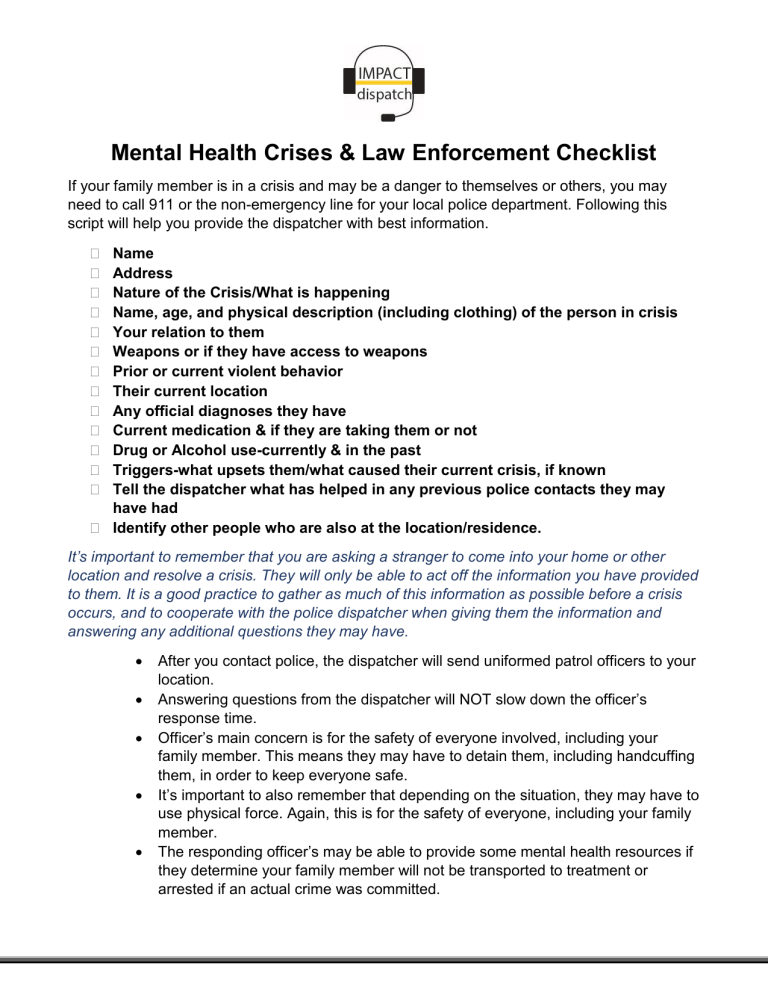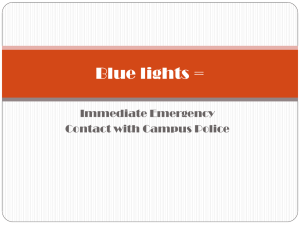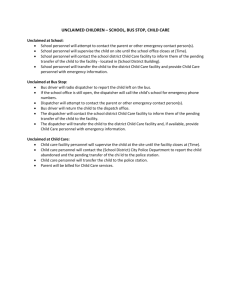
Mental Health Crises & Law Enforcement Checklist If your family member is in a crisis and may be a danger to themselves or others, you may need to call 911 or the non-emergency line for your local police department. Following this script will help you provide the dispatcher with best information. Name Address Nature of the Crisis/What is happening Name, age, and physical description (including clothing) of the person in crisis Your relation to them Weapons or if they have access to weapons Prior or current violent behavior Their current location Any official diagnoses they have Current medication & if they are taking them or not Drug or Alcohol use-currently & in the past Triggers-what upsets them/what caused their current crisis, if known Tell the dispatcher what has helped in any previous police contacts they may have had Identify other people who are also at the location/residence. It’s important to remember that you are asking a stranger to come into your home or other location and resolve a crisis. They will only be able to act off the information you have provided to them. It is a good practice to gather as much of this information as possible before a crisis occurs, and to cooperate with the police dispatcher when giving them the information and answering any additional questions they may have. • • • • • After you contact police, the dispatcher will send uniformed patrol officers to your location. Answering questions from the dispatcher will NOT slow down the officer’s response time. Officer’s main concern is for the safety of everyone involved, including your family member. This means they may have to detain them, including handcuffing them, in order to keep everyone safe. It’s important to also remember that depending on the situation, they may have to use physical force. Again, this is for the safety of everyone, including your family member. The responding officer’s may be able to provide some mental health resources if they determine your family member will not be transported to treatment or arrested if an actual crime was committed.


